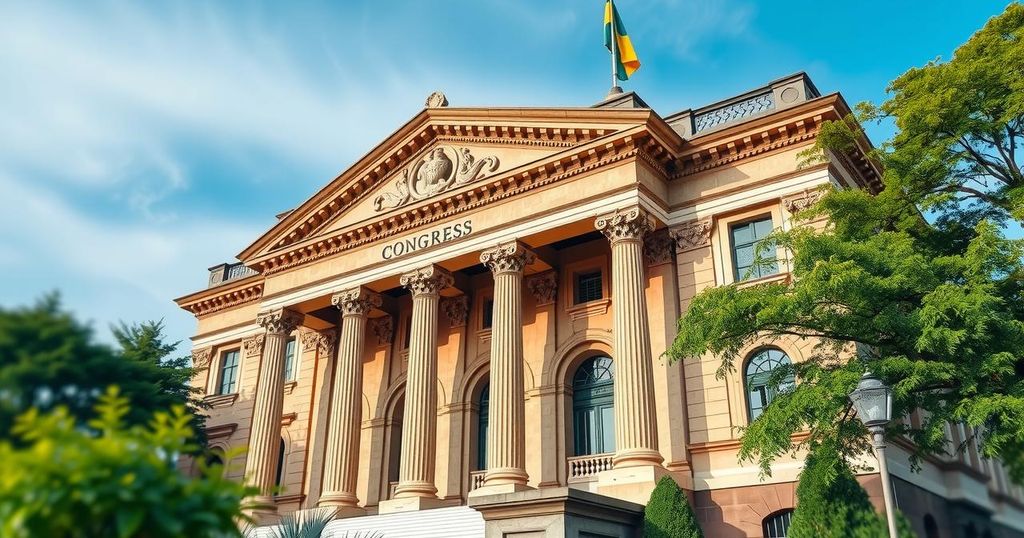economics
Politics
ARGENTINA, BUENOS AIRES, CHAMBER OF DEPUTIES, CONGRESS, CORRUPTION, DEMOCRACY, DNU, FISCAL POLICY, FRANCES KERRY, IMF, INFLATION, INTERNATIONAL MONETARY FUND, MILEI, NICOLAS MISCU, NICOLAS MISCULIN, PERONIST, REUTERS, SOUTH AMERICA, THOMSON REUTERS, TRADE RELATIONS
Jamal Walker
0 Comments
Argentina’s Congress Engages in Key Debate on IMF Agreement
Argentina’s Congress is debating a new IMF deal crucial for financial recovery. President Milei issued a decree supporting the program as the country copes with severe economic challenges. Despite holding a minority, Milei aims to secure enough votes, while facing protests over cuts impacting vulnerable citizens.
Argentina’s Congress commenced discussions on a critical agreement with the International Monetary Fund (IMF) on Wednesday, which will be voted on soon. This potential deal, centered on a decree from President Javier Milei’s administration, is crucial for the nation’s financial recovery. Should both chambers of Congress oppose the decree, it could face termination.
The country, grappling with negative foreign currency reserves due to extensive overspending and financial crises, is the IMF’s largest borrower, having participated in 22 loan programs. Currently, Argentina is still repaying a substantial $44 billion loan from 2022. The government maintains that a new agreement is essential to stabilize the central bank’s finances and eventually lift capital controls established in 2019, which are hindering business activities.
Although Milei’s libertarian party holds a minority in Congress, he has previously garnered support from conservative and moderate factions to advance his legislative agenda. This time, confidence remains high that enough backing will be secured for the IMF decree’s approval. Moderate Peronist lawmaker Miguel Pichetto expressed, “I support this though with a critical eye. I will vote in favor,” highlighting his cautious optimism despite concerns regarding the decree’s clarity.
President Milei, an outsider who unexpectedly won the 2023 elections by pledging to resolve Argentina’s lengthy economic crisis, has taken steps to curb inflation and address fiscal deficits. Nevertheless, he now faces significant challenges in fostering economic growth and improving government finances. This IMF agreement is pivotal in affirming his legislative influence, particularly after the controversial decision to pursue the deal through a presidential decree instead of a conventional congressional bill.
His stringent austerity measures and budget cuts have contributed to rising poverty levels and instigated protests, especially among vulnerable pensioners. A weekly demonstration was anticipated outside Congress to express these concerns.
(Reporting by Nicolás Misculin; Editing by Lucila Sigal and Frances Kerry) Copyright 2025 Thomson Reuters
The debate in Argentina’s Congress regarding the new IMF deal represents a crucial juncture for the country’s financial stability. As President Milei navigates a complex political landscape, the approval of this agreement may be essential to bolster the central bank and lift capital controls. The discussions also underscore rising tensions surrounding austerity measures and the socio-economic implications for citizens.
Original Source: www.usnews.com




Post Comment